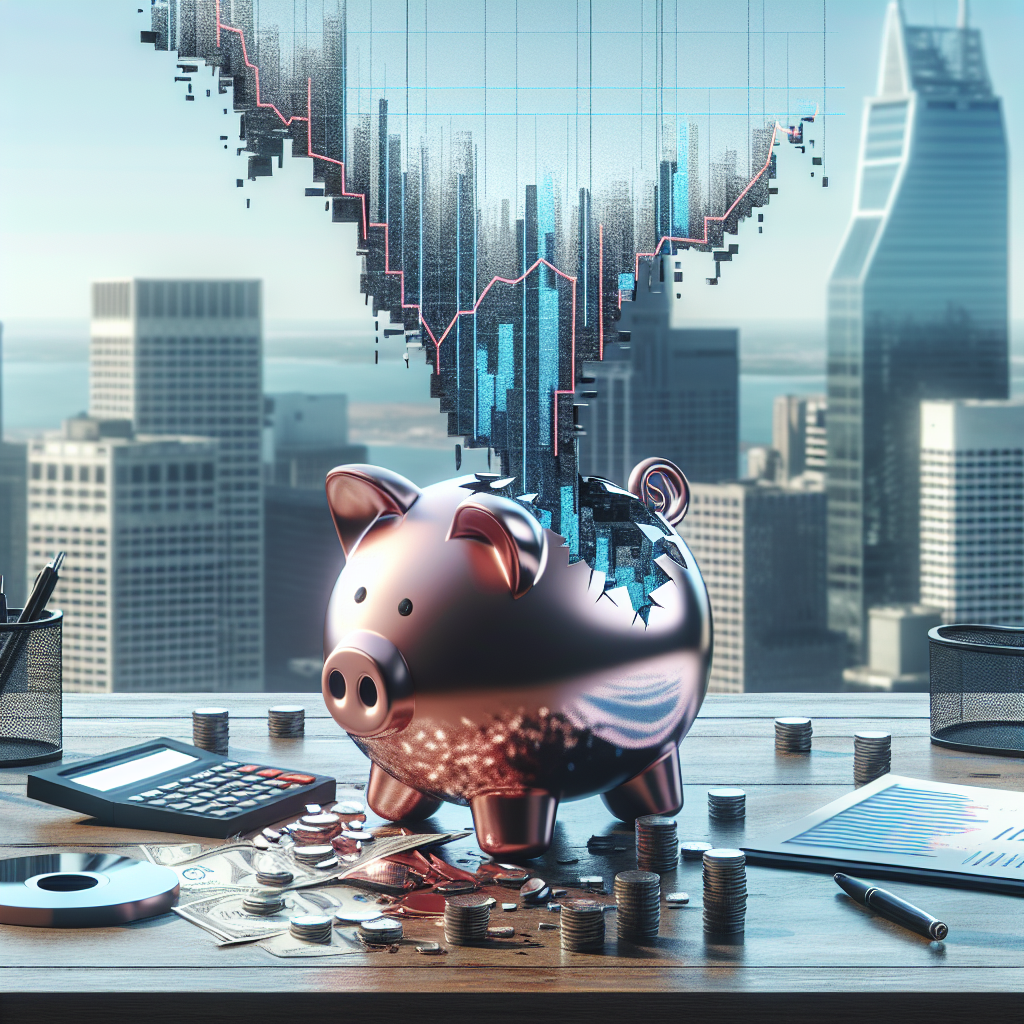Trade Wars Continue to Disrupt U.S. Economy: Business Investment Sees Largest Decline in Six Months
The Numbers Speak for Themselves
Business investment has taken a significant hit, presenting a clear indicator of the ongoing chaos generated by trade wars and fluctuating tariffs. A recently released durable goods report reveals that core orders—an essential gauge of future economic performance—fell by a stark 1.3% in April, marking the most substantial drop in six months, as reported by Jeffry Bartash from Dow Jones.
This measure, which excludes the often erratic transportation sector including autos and airplanes, is critical in forecasting the economic landscape. The overall new orders for durable goods plummeted by 6.3% after a sizable 7.6% uptick in the preceding month. However, both figures are significantly influenced by seasonal fluctuations associated with new contracts for Boeing’s (BA) passenger planes. When we sift through the noise and exclude transportation, durable goods orders experienced only a meager rise of 0.2% in April.
Economists’ Concerns
Economists had anticipated a more substantial average decline of around 7.8% in durable goods orders for April. As businesses scrambled to place orders for supplies before tariffs came into effect, their investment has clearly wavered, signaling potential challenges ahead. Notably, shipments of industrial goods, when isolated from autos and planes, also took a slight downturn in April, which raises alarms about weak business investment that could impede growth in Gross Domestic Product (GDP) during the second quarter.
The Big Picture: Tariffs Affecting Business Confidence
While President Donald Trump has made strides in reducing tariffs from extremely high levels, his oscillating stance on tariff policies has created an environment of unpredictability. This chronic back-and-forth makes it exceptionally difficult for businesses to formulate long-term strategies concerning investment and hiring. Analysts assert that as long as trade wars rage on, uncertainty will continue to loom over the economy.
CIBC Economics’ economist Ali Jaffery echoed this sentiment in his remarks regarding the capital goods orders. He highlighted a “clear sign that the pain in investment is still to come,” indicating that businesses are scrambling to weather the storm. Organizations are absorbing costs and stretching inventories, all while keeping staffing levels stable, desperately focusing on short-term survival until a more favorable tariff landscape emerges.
Looking Ahead: Challenges Remain
For those observing the economic terrain, these developments should not be taken lightly. The persistent trade war is a robust barrier to sustained economic growth. This vital industry data paints a grim picture: if businesses are holding back on investment, it is paramount to question how this will affect consumer confidence, hiring trends, and ultimately, economic expansion in the United States.
In conclusion, the latest durable goods report illustrates the ongoing consequences of trade wars and their tangible effects on business investment. The decline in core orders is not merely a statistical anomaly; it reveals a cautious business environment wrestling with external uncertainties that could forecast weaker economic performance in the months ahead. Until the governmental indecision on trade issues resolves, the business community will remain in a state of hesitance—a challenging prospect for an economy striving for stability and growth.
Final Thoughts
As the landscape continues to evolve under the pressures of changing tariff policies and geopolitical tensions, understanding these economic indicators is vital for informed decision-making. We must remain vigilant in monitoring how these factors affect traditional financial principles and the broader U.S. economy. In due time, the impact on investment, hiring, and consumer behavior will become increasingly evident. The underlying question remains: will we have the fortitude to move past this turbulence and embrace a more stable economic future? Only time will tell, but the focus should always revert to sound financial strategies rooted in resilience and foresight.




